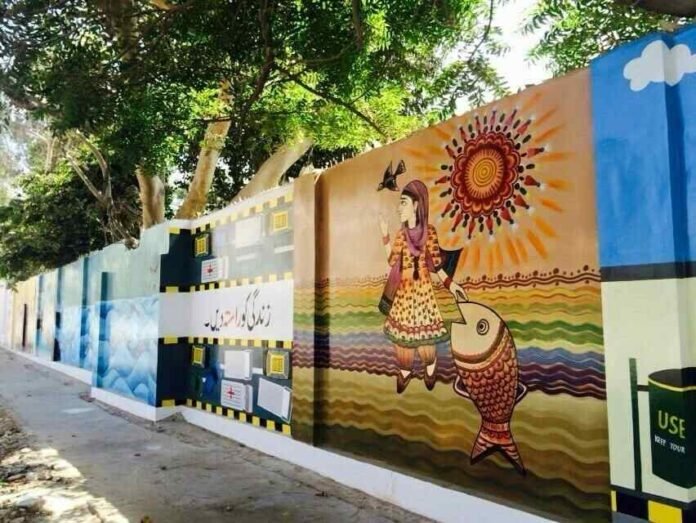Contents
In playgrounds across South Asia, generations of young girls once played a sing-song game that seemed innocent at the time. One child stood in the center as the machhli—the fish—while the others formed a circle around her, chanting:
“Hara Samander, Gopi Chandar, Bol meri machhli, kitna pani?”
The child would respond wordlessly, stretching her arms upward to show just how much water surrounded her. What was once simple play now reads like an ominous metaphor in a warming world where floods swallow villages and seas creep higher each year.
Folk Memory Hidden in Play
The rhyme itself is layered with cultural memory. “Hara Samander” — literally “Green Ocean” — conjures something dreamlike and mysterious, almost mythic. “Gopi Chandar,” meanwhile, traces back to oral traditions in Punjab and Rajasthan, where King Gopi Chand renounced his throne in pursuit of spiritual wisdom, often linked with rivers and the natural order.
That such figures appear in a children’s game may not be accidental. Women’s cultural practices—songs, games, embroidery—have long carried ecological wisdom, preserving lessons about balance and humility before nature. Yet in our industrial age, those lessons have slipped into obscurity.
From Chant to Warning
The imagery of the game feels uncomfortably relevant today. The lone fish in the center, encircled and trapped, mirrors the fate of millions displaced by climate disasters. Pakistan’s 2022 floods, which inundated a third of the country, offered a chilling example. Families marooned by rising waters might well have answered the children’s chant with the same gesture: water above their heads, too deep to escape.
This parallel raises a haunting question: Are we, as a global community, the chanting circle—observing, questioning, even sympathizing—but failing to act?
Memory on a Wall in Karachi
Years ago, writer and artist [the author] revisited this childhood game in a story titled Hara Samander, later transforming its imagery into a public mural on Karachi’s Hoshang Road. Painted as part of the “I Am Karachi” movement, the mural was intended to spark reflection on imagination and the joy of reading. Looking back now, it also seems to whisper about the environmental tides rising around us.
A Forgotten Lesson
The presence of Gopi Chandar in the rhyme feels like a reminder of an older worldview—one that placed humility and harmony with nature above conquest and control. By reducing him to a half-remembered chant in a game, perhaps we also abandoned the ecological wisdom he symbolized.
Today, climate change has made clear what that renunciation meant: resistance against nature’s limits is futile. The floods, droughts, and heatwaves are nature’s counterstroke.
Asking the Right Question
If children were to play this game today, the question might shift. Instead of “Kitna pani?” (How much water?), they might ask, “Kitna waqt?” (How much time do we have left?).
But perhaps the original question still matters most. Because the water is rising—and the fish in the center is no longer playing.


